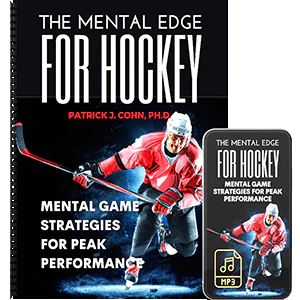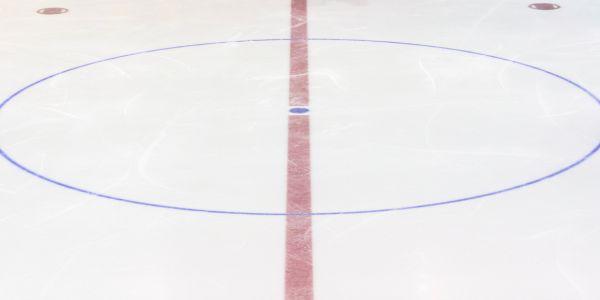What Do You Do When You Fall Out of Favor with Your Coach?
Having a difference of opinion with your coach increases worry and anxiety and can change how you play the game.
Hockey is a fast game where players must trust and rely on their instincts and not worry about aspects outside of their control.
Focusing on factors outside of your control can cause you to play cautiously and slow down your reactions on the ice.
For instance, if your coach drops you down the depth chart, focusing on the “fairness” of that decision may cause you to lose motivation or lack intensity during your limited time on the ice.
When you focus on what you cannot control, several negative consequences arise:
- Stress and anxiety build, causing frustration, worry, and helplessness.
- Focus is diverted away from your play and what might happen if you play poorly.
- Confidence decreases because you feel helpless and powerless to change your situation.
- Mental and physical energy levels diminish because you invest much of your time in things you can’t change.
- Pessimism builds when you feel that the outcome is out of your hands no matter what you do.
- Preparation may be lacking, causing you not to be ready to play your best hockey when you receive an opportunity to expand your role.
What can you control? You have four aspects that you can completely control:
- Effort – During practice, you can put 100% effort into every drill.
- Focus – Instead of concerning yourself with distractions, you can focus on improving your game and contributing to the team.
- Attitude – Instead of spreading negativity and divisiveness, you can show up to team events ready to go with a positive attitude.
- Preparation – You can commit to preparing thoroughly because you never know when you will be called upon.
By shifting your attention to what you can control you regain power, improve your performance, and maintain a positive, empowering perspective.
Toronto Maple Leaf defenseman Timothy Liljegren has been a healthy scratch in the first three games of the 2024-25 NHL season. In addition, there were rumors that the Leafs were looking to trade Liljegren.
However, Liljegren focused on what he could control: his attitude, mentality, focus, and effort.
LILJEGREN: “Not fun not playing but I’ve been trying to come in and work as hard as I can to get back in the lineup. I talked to (Toronto coach Craig Berube) and it’s more like playing a little easier simple game. I think that’s it, just play hard and simple.”
Overthinking and worrying about things you cannot control is the enemy of peak performance for a hockey player. To regain a sense of control, you must focus on ways you can elevate your game.
First, understand that you cannot control the decisions and actions of others. Next, shift your mindset to what you can control: effort, focus, attitude, and preparation.
Before every practice or competition, identify one or two areas within your control that you can improve and set objectives, such as your stick-handling.
By narrowing your attention to these factors, you’ll reduce distractions, boost confidence, and enhance your performance.
Related Articles on Hockey Mental Game:
- Hockey Confidence: How to Take Control
- How to Create a Winning Mindset for Hockey
- How to Play with Intensity on Your First Shift
*Subscribe to The Sports Psychology Podcast on iTunes
*Subscribe to The Sports Psychology Podcast on Spotify
The Mental Edge for Hockey

The Mental Edge for Hockey teaches you proven and simple mental game strategies so you can overcome fear of failure, lack of confidence, slumps or poor composure, take your practice game to competition, and boost your confidence in hockey. You learn simple, actionable mental game strategies to help you perform at your peak!
I’ve worked with athletes for 30 plus years – and know the top challenges that undermine performance when you perform in games. Now you can tap into my expertise and experience in coaching hockey players on the mental game.
In this program, you’ll learn the TOP 10 mental training lessons for hockey players – the same strategies I teach one-on-one athletes I coach on the mental game. My clients pay thousands of dollars for personal coaching, but now you can have the same strategies to improve your mental game – at a fraction of the price.

Leave a Reply